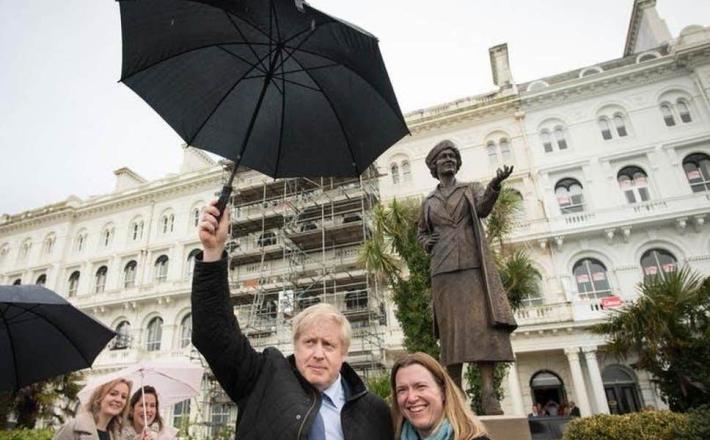UK: Why are women less visible during the 2019 election?
Source: Independent
Every general election is haunted by the ghosts of campaigns past. The most significant spectre in 2019 has to be Nancy Astor, who on 1 December 1919 was the first woman to take her seat in the House of Commons as an elected member of parliament – and to whom a statue was unveiled in Plymouth on the anniversary of her election. One wonders what she would make of the gender politics of this campaign.
The omens were not good from the outset. The prime minister was criticised for his sexist phraseology, separately describing Jeremy Corbyn as “a big girl’s blouse” and David Cameron as “a girly swot”.
Meanwhile, Alun Cairns resigned as Welsh secretary after allegations emerged that he knew of an aide’s role in sabotaging a rape trial. He has vowed to “clear his name”. Alarm has also grown about the horrific abuse women MPs, particularly those of colour, suffer online and in the streets.
In a speech this week at the unveiling of Astor’s statue, Theresa May, the former prime minister, voiced concern that the decisions by several influential women parliamentarians not to seek re-election were linked to the growing toxicity of public life.
Click here to read the full article published by Indepent on 10 December 2019.

Every general election is haunted by the ghosts of campaigns past. The most significant spectre in 2019 has to be Nancy Astor, who on 1 December 1919 was the first woman to take her seat in the House of Commons as an elected member of parliament – and to whom a statue was unveiled in Plymouth on the anniversary of her election. One wonders what she would make of the gender politics of this campaign.
The omens were not good from the outset. The prime minister was criticised for his sexist phraseology, separately describing Jeremy Corbyn as “a big girl’s blouse” and David Cameron as “a girly swot”.
Meanwhile, Alun Cairns resigned as Welsh secretary after allegations emerged that he knew of an aide’s role in sabotaging a rape trial. He has vowed to “clear his name”. Alarm has also grown about the horrific abuse women MPs, particularly those of colour, suffer online and in the streets.
In a speech this week at the unveiling of Astor’s statue, Theresa May, the former prime minister, voiced concern that the decisions by several influential women parliamentarians not to seek re-election were linked to the growing toxicity of public life.
Click here to read the full article published by Indepent on 10 December 2019.